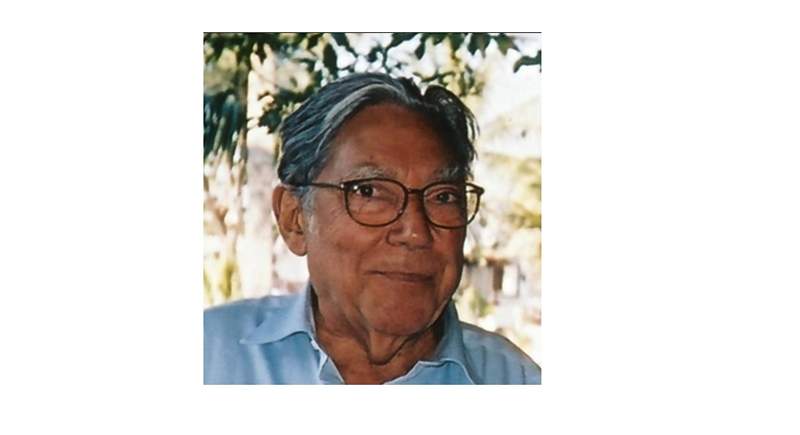Biography of Jean Laplanche (1924-2012)

- 4873
- 1455
- Lorenzo West I
Jean Laplanche was a prominent and recognized French psychoanalyst, who contributed to discipline with his contributions, especially in the role of translation.
Biography of Jean Laplanche
He was born in 1924, in Paris, his childhood passed in the city of Beaune, in the Burgundy region, so grew in a country atmosphere, in the middle of vineyards who were owned by his family.
During his early youth he was part of the group Action Catholique, A Catholic Left Catholic organization, which aspired to social justice. After 18 years he went to the ranks of the French resistance and, after the war, he actively participated in politics, as a militant of Trotskyist circles.
Was founding member of the Marxist group Socialism or barbarism, whose objective was to combat totalitarian and stalinist trends in the left. But, little by little, due to the difference he kept with the ideas of Cornelius Castoriadis, he distanced himself from this group.
In 1940 he developed his studies in philosophy, In an environment that allowed him to know, among other personalities, Michel Foucault. In the École Normale Supérieure de Paris He could also know part of the elite in this area of study and have very important teachers. He was a prominent and student of Hegel, by Jean Hyppolite, as well as Merleau-Ponty and Gaston Bachelard, among others.
Between 1946 and 1947 he studied a year at Harvard, at the Institute of Social Relations. That was when he began to awaken his interest in psychoanalysis, After having contact with Rudolph Lowenstein, with Jacques Lacan and Daniel Lagache, in Paris.
When he returned, in 1947, he began his analysis with Jaques Lacan, who at that time was one of the most recognized psychoanalysts in the Parisian psychoanalytic field. In 1950 he married Nadine Madeleine France Guillot, who would be her partner for 60 years, until she died in 2010.
Following Lacan's advice, He began studying medicine, but his purpose was to become a psychoanalyst, so it began to be part of the International Psychoanalytical Association And, as of 1961, he was a teacher at Sorbonne, in Paris. He was closely associated with Lacan's intellectual positions, until 1964, when an important breakdown occurred and that marked his career as a psychoanalyst.
Theory and principles of psychoanalysis or psychoanalytic approach to Freud
Thus, together with other psychoanalysts who had taken distance from Lacan, among which were Bertrand Pontialis, Didier Anzieu and Waldimir Granoff, founded the APF, that is, the Psychoanalytic Association of France, which was recognized by the International Psychoanalytic Association, of which Lapanche was president between 1969 and 1971.
Later, Jean Laplanche and Pontialis would explain what were the reasons that led them to distance themselves from Lacan, stating that they reached a time when they realized that Lacan's slogan of an alleged return to Freud "Ticket without return", but towards Lacan himself.
However, the criticism that Lapanche makes to Freud, and the return to it, has a good foundation and acceptance, since it is based on the deep review of his work, as a suggestion of Daniel Lagache who, together with Pontialis, Write a psychoanalysis dictionary, A work that took several years of strong work and with original sources, as well as the careful translation of concepts, such as the systematization, concatenation and structuring of materials. This work was published in 1967 and became an important psychoanalyst reference work. Said dictionary It was translated into several languages And they not only tried to define the terms precisely, but also carefully examine their origin, following a historical evolution of each term in psychoanalytic theory, which, in most cases, led Freud's sources. However, the interest in Freud's figure, apparently, was never personal, but tried to understand, examine and criticize his work rigorously.
In 1986 LAUSANA UNIVERSIDAD EL GIVE JEAN LAPLANCH Honoris Causa, Like other universities, they also recognized their contributions, granting the same degree, such as the University of Buenos Aires or the University of Athens.
He has also received other academic awards and distinctions. In 1990 he was granted the degree of Chevalier des arts et lettres And, in 995, the Mary S Prize. Sigourneñy.
He was a professor at the University of Paris VII, between 1970 and 1994. The classes he gave there were published and disseminated in French, in seven volumes that were called Problématiques.
Since 1988, Jean Laplanche He devoted himself hard to the scientific direction of the new French translation project of Freud's complete works.
He died in 2012 at 87 as a result of a pulmonary fibrosis, in Beaune, the same city where his childhood lived and where he had retired to live a while ago a while ago.
Bibliography
- Caruth, c., & Laplanche, J. (2001). An interview with jean laplanche. Postmodern Culture, eleven(2).
- Laplanche, j., & Folle, M. AND. (1969). Interpret (with) Freud. Uruguayan Magazine of Psychoanalysis, eleven(3-4), 305-321.
- Laplanche, j., & Fletcher, J. (2005). Essays on otherness.
- « The mental contrast technique, think about obstacles
- Why don't you talk about Bruno, but in psychology yes? FAIR MOVIE »

